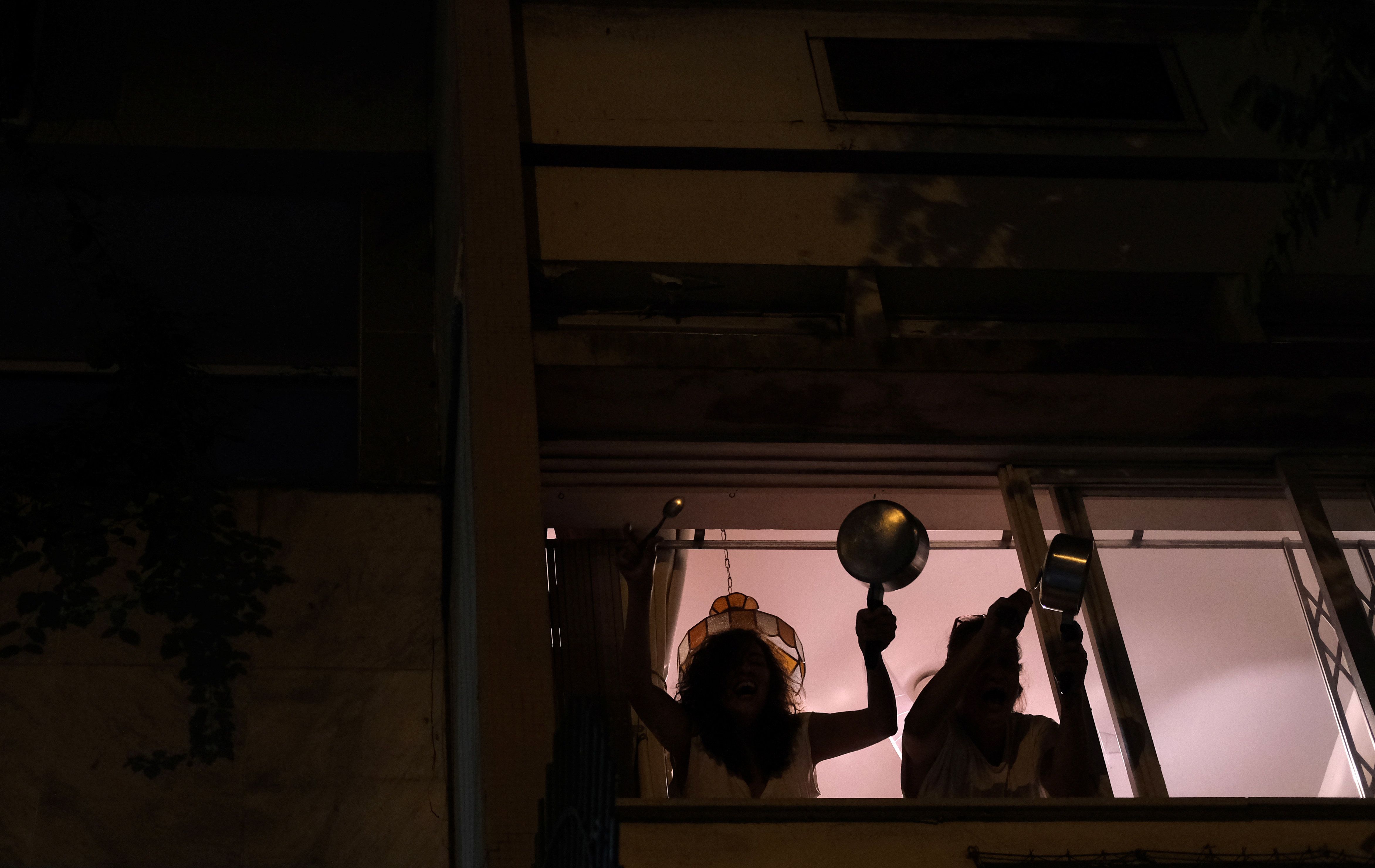March 19, 2020
Banging pots at Bolsonaro – How do you protest your government while following social distancing guidelines? Grab a pot, head to the window, and bang it loudly. That's what millions of Brazilians did this week to vent frustration at President Jair Bolsonaro's poor handling of the coronavirus crisis. Bolsonaro at first derided the pandemic as a media-fueled "hysteria." Then, shrugging off social distancing recommendations, he egged on a mass pro-Bolsonaro demonstration last weekend. To top it off, despite being exposed to the disease during a recent trip to Donald Trump's Florida estate, he showed up at the event to glad-hand, fist bump, and take selfies with his supporters. With two of his ministers among the more than 500 positive cases of COVID-19 in Brazil, Bolsonaro's government is finally mounting a rear-guard action to squelch the outbreak and soften the economic blow. But we'll see if that stops the racket echoing through the streets of Sao Paulo and Rio. To date these are the largest protests against Bolsonaro since he took office just over a year ago.
WHO's stark warning for Africa – The director general of the World Health Organization, Tedros Adhanom Ghebreyesus, has told African nations to "prepare for the worst," warning that lax measures to curb transmission of COVID-19 will be catastrophic for the world's poorest continent and its 1 billion people. Africa's handling of the pandemic has received little global attention as Europe takes the spotlight. But medical experts are worried about the pandemic hitting African countries that have weak health systems, poor infrastructure, inept governments, and populations disproportionately affected by HIV and other infectious diseases. Though initially slow to act, Burkina Faso, which recorded its first death from the virus Wednesday, has now closed its schools and banned public gatherings. South Africa, the continent's largest economy and sub-Saharan Africa's worst hit country, has implemented travel restrictions, but commuters continue to cram into trains. Meanwhile, the country's health minister recently warned that cases are piling up at an "explosive" rate.
Tech fights coronavirus – Tech companies have joined the fight against COVID-19 in amazing ways: facial recognition is helping to enforce quarantines. Artificial Intelligence is being trained to detect, predict, and treat COVID-19 cases. Cellphone data is being used to track outbreaks. Social media platforms are deleting misinformation about the virus. Right now, it's all tech on deck to fight a pandemic that could cause a global depression. But these approaches raise big questions about privacy, personal data, and free speech that may arise more forcefully once the pandemic has passed.
More For You
- YouTube
In this Quick Take, Ian Bremmer weighs in on the politicization of the Olympics after comments by Team USA freestyle skier Hunter Hess sparked backlash about patriotism and national representation.
Most Popular
Bad Bunny during the Super Bowl LX halftime show press conference at Moscone Center.
Kirby Lee-Imagn Images
100 million: The number of people expected to watch the Super Bowl halftime performance with Bad Bunny, the Puerto Rican superstar and newly minted Album of the Year winner at the Grammys.
Alysa Liu of Team USA during Women Single Skating Short Program team event at the Winter Olympic Games in Milano Cortina, Italy, on February 6, 2026.
Raniero Corbelletti/AFLO
Brazilian skiers, American ICE agents, Israeli bobsledders – this is just a smattering of the fascinating characters that will be present at this year’s Winter Olympics. Yet the focus will be a different country, one that isn’t formally competing: Russia.
What We’re Watching: Big week for elections, US and China make trade deals, Suicide bombing in Pakistan
Feb 06, 2026
Japanese Prime Minister Sanae Takaichi, president of the Liberal Democratic Party (LDP), appeals for a candidate during a street speech of the House of Representatives Election Campaign in Shintomi Town, Miyazaki Prefecture on February 6, 2026. The Lower House election will feature voting and counting on February 8th.
The Yomiuri Shimbun
Japanese voters head to the polls on Sunday in a snap election for the national legislature’s lower house, called just three months into Prime Minister Sanae Takaichi’s tenure.
© 2025 GZERO Media. All Rights Reserved | A Eurasia Group media company.
